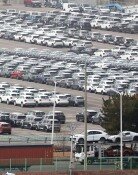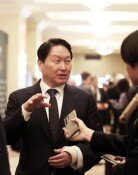[Editorial] The Growing Gap Between the President and the People
[Editorial] The Growing Gap Between the President and the People
Posted June. 29, 2005 06:01,
Yesterday, President Roh Moo-hyun announced through An Address to the People that he would not accept the resignation of Defense Minister Yoon Kwang-ung in relation to the recent military shooting incident that cost the lives of eight soldiers. The president argued that he would not dismiss a government official simply to appease the public or the opposition party, if he himself did not deem such a measure to be necessary. He further argued that there was no logical basis to lay the legal or political responsibility for this incident on the defense ministers shoulders, pointing out that the replacement of the defense minister would be detrimental to the governments ongoing national defense reforms as well.
But we see the presidents decision to retain Defense Minister Yoon as an erroneous choice that may well be interpreted as obstinacy. It is only right that, as an administrative official, the defense minister takes responsibility and resigns his post regardless of pressure from the public or the opposition. Political accountability does not derive merely from logic and causality. Moreover, the claim that appointing a new defense minister would derail national defense reforms is a one-sided argument. If it didnt affect educational reform to sack the minister of education after just a few months in office, theres no reason for the defense minister to be an exception.
The contents of the letter that President Roh sent to the members of the Uri Party on June 27 are equally unconvincing. The president made no secret of the fact that so-called parachute appointments (arbitrary appointments of selected individuals by persons in power) for losing election candidates in the Yeongnam region would be inevitable if the ruling party was to increase its regional support base. In fact, 25 out of the 31 persons appointed to key posts in government and related agencies after losing in the April general election and the June special election are reported to be from the Yeongnam region. Such a clear demonstration of a political agenda can trigger intensified conflict among regions, rather than rectify the current state of regional imbalance.
President Roh reproved the clamor of criticisms inside the party and asked detractors not to disrupt the Partys leadership. While its true that the ruling party is unable to fulfill its proper function due to fruitless ideological conflicts with the utilitarian and reform parties, the clamor of criticisms within the ruling party owes not a little to Cheong Wa Dae itself. The push for separation between party and government has rendered government-party consultative meetings into hollow gestures, and all manner of presidential committees are lording it over the government. As a result, the party has devolved into a powerless onlooker.
To resolve this difficult crisis in state administration, it is imperative for the president to recognize the root of the problem. It is distressing, then, that President Rohs wrong-headedness and upside-down view of reality are distancing him further and further from the people hes supposed to represent.







